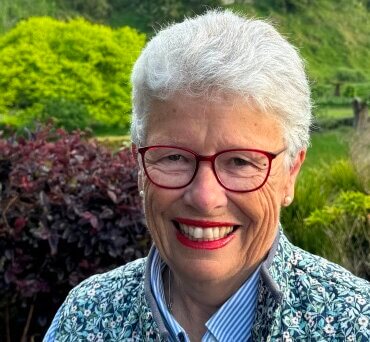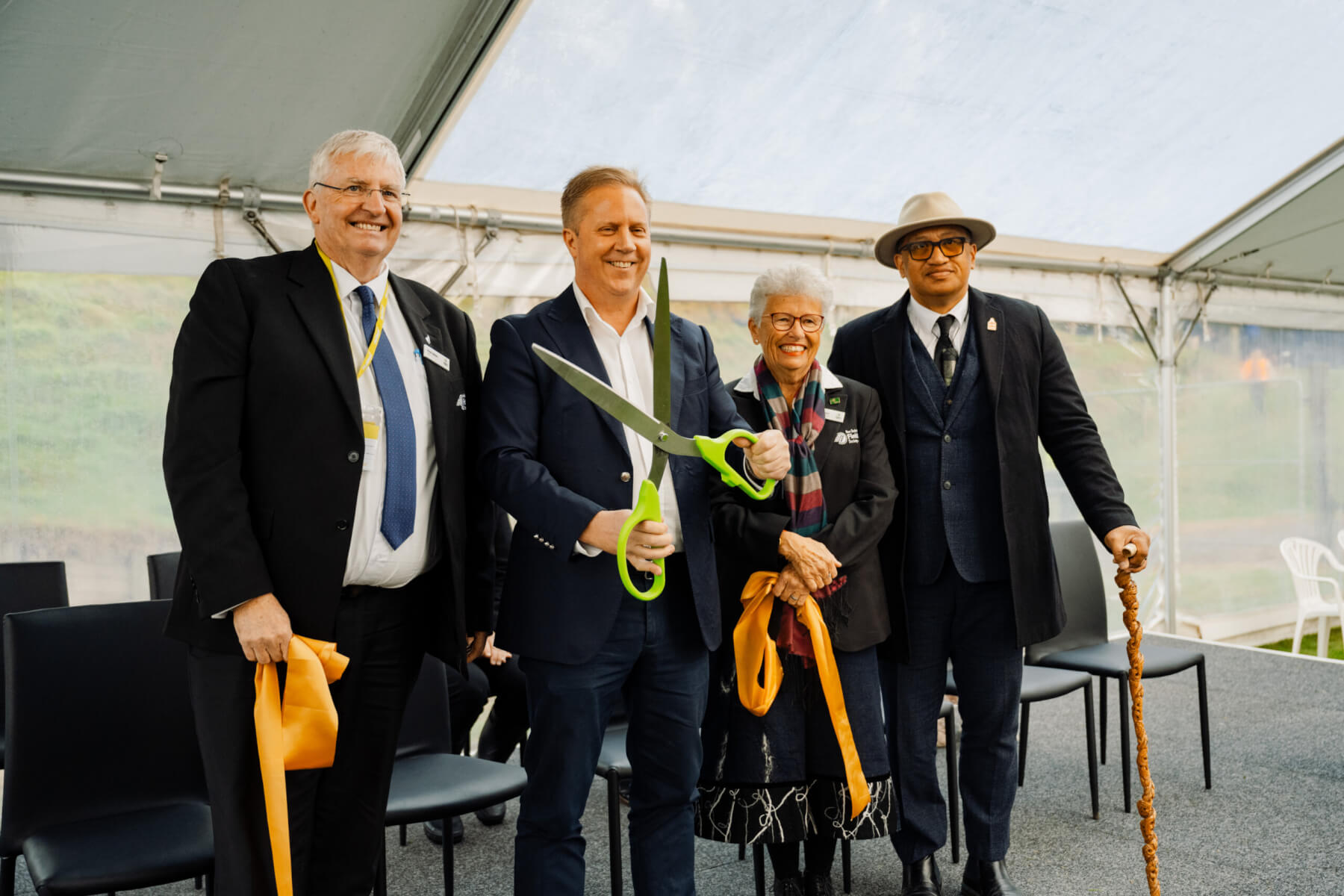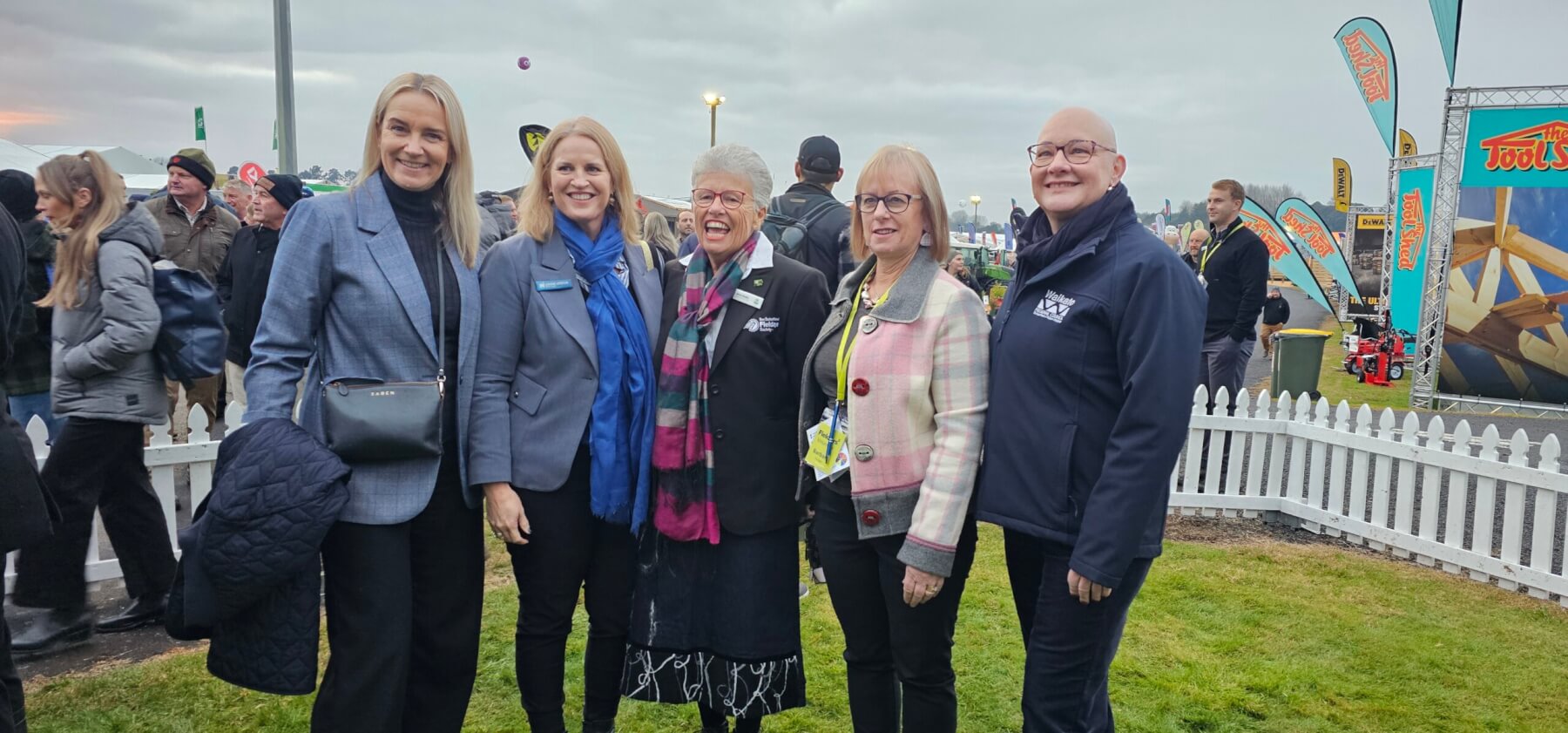
Jenni Vernon
A gorse-busting drone will soon benefit outgoing National Fieldays Society board chair Jenni Vernon’s 224-hectare Te Akatea farm.

Fieldays 2024 was officially opened with a pōwhiri and the raising of flags, followed by a ribbon-cutting ceremony led by chief executive Peter Nation, Agriculture and Trade Minister Todd McClay, chair, Jenni Vernon and Tumuaki o te Kiingitanga Hone Thompson.
Hill country farmers use drones to spray weeds in areas that are hard to reach with traditional equipment.
“We have got a contractor coming up to spray our gorse with a drone,” Vernon said.
“That’s just fascinating, isn’t it? The fact that a drone can have enough water. It’s really targeted. We’re not going to have spray drift on our neighbour. It’s cost effective.”
She and her husband Gordon lease a dry stock unit near Glen Massey to their son Simon and his wife Nicola. Vernon works for the Ministry of Primary Industries, and works on the farm as and when required,
“My son is hoping that one day we might have a drone that might open the gates of the back paddock for him and shift the stock, or check the water troughs, and that’s not beyond the realms of possibility really, is it?”
Such on-farm uses of drones have led to the Agricultural Drone Association supporting the inaugural Fieldays Drone Zone where industry experts will share knowledge on how drones are revolutionising farm management.
Drones equipped with multispectral cameras can help farmers analyse crop health, detect pest infestations, and optimise irrigation schedules. Farmers can use drones to track and locate animals across large paddocks, reducing labour and improving response times during lambing season. Specialised drones apply pesticides and fertilisers with remarkable accuracy, reducing chemical use and minimizing environmental impact. Drones help farmers document environmental compliance, monitor soil health, and assess water management.
“People like to see, and touch and investigate, and eyeball new products,” Vernon said. “That’s one of the attractions of Fieldays. You can see it, hear it, experience it, share ideas, and chew the fat with people.”

Catching up: At the opening of Fieldays 2024 were from left Waipā mayor Susan O’Regan, Taupō MP Louise Upston, Fieldays president Jenni Vernon, Taranaki-King Country MP Barbara Kuriger and Waikato Regional Council chair Pamela Storey. Photo: Mary Anne Gill.
Vernon will also be busy running the Fieldays kitchen where she and her team feed volunteers, staff and emergency services.
Punters are given the option of adding a $5 donation to the Rural Support Trust which supports farmers when times are tough.
“We haven’t done that before, it will be interesting to see how it gets for a really good cause, and an opportunity for us to give back to the community directly. They do an amazing job. All of it’s voluntary.”
“The drought, as you would expect, has been quite tough, but there is a quiet feeling of optimism,” Vernon said.
Dairy giant Fonterra is forecasting between $9.70 and $10.30 per kilogram of milksolids, a record, for the current dairy season.
“You will notice when you go to the supermarket that butter, cheese, milk, and meat price have gone up. That not only reflects the costs of producing that product, and the price we are getting in export dollars.
“I have been in farming all my life, and it’s nothing new that costs go up. It is what it is. At least we’re not paying interest rates of 22 per cent, like we were when we first started out in farming. Interest rates are definitely going down.
Vernon has served on the society board for 10 years and will relinquish the chair in December, but her involvement with the society is expected to continue after that.









